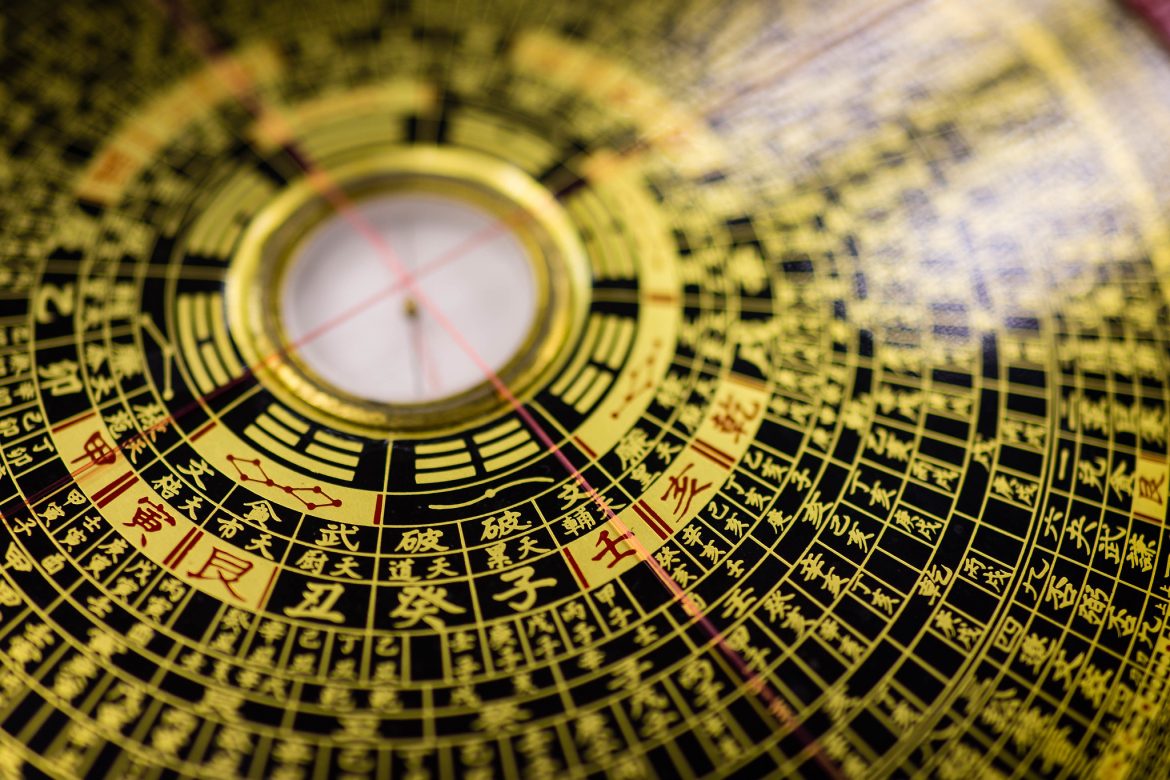Fostering positive energy in your living space is an important factor in building a home. Fortunately, this can be easily accomplished through the art of feng shui. Though many people are already familiar with this ancient Chinese art, there are still others who may not know what it is. Don’t worry if you’re unfamiliar with feng shui basics, because this article will cover all that and more.
First off – let’s explore what the feng shui meaning is.
What is Feng Shui?
The feng shui definition states that it is an ideology originating from ancient China. It claims chi (energy) can be used to create a balance between yourself, other individuals, and the surrounding environment. This ancient Chinese philosophy holds that everything you see, touch, and feel contains chi. As such, it connects you to the objects in your surroundings.
The word “feng” translates to “wind,” whereas “shui” translates to “water.” The ancient Chinese attributed both wind and water elements to mean good health. Thus, the concept of feng shui became associated with good health and fortune.
The feng shui principle typically teaches you how to influence your environment by obeying energy flow principles. It targets the influence you can make on your environment using chi to attract only positive energy to yourself and the people around you. You can do this by altering the positions of different items situated in your home. For instance, changing the position of energy entrances and exits like the front and back door can ensure easy distribution of energy around any space.
Certain areas in your house are ideal to implement feng shui. These include:
- The kitchen
- Your living room
- The garden
- Your bedroom
- A home office
- Your bathroom
Take note that feng shui not only applies to the arrangement of things in your house, but it also includes an arrangement of things in total. This includes the design of your house, coloring, building structure, and so on.
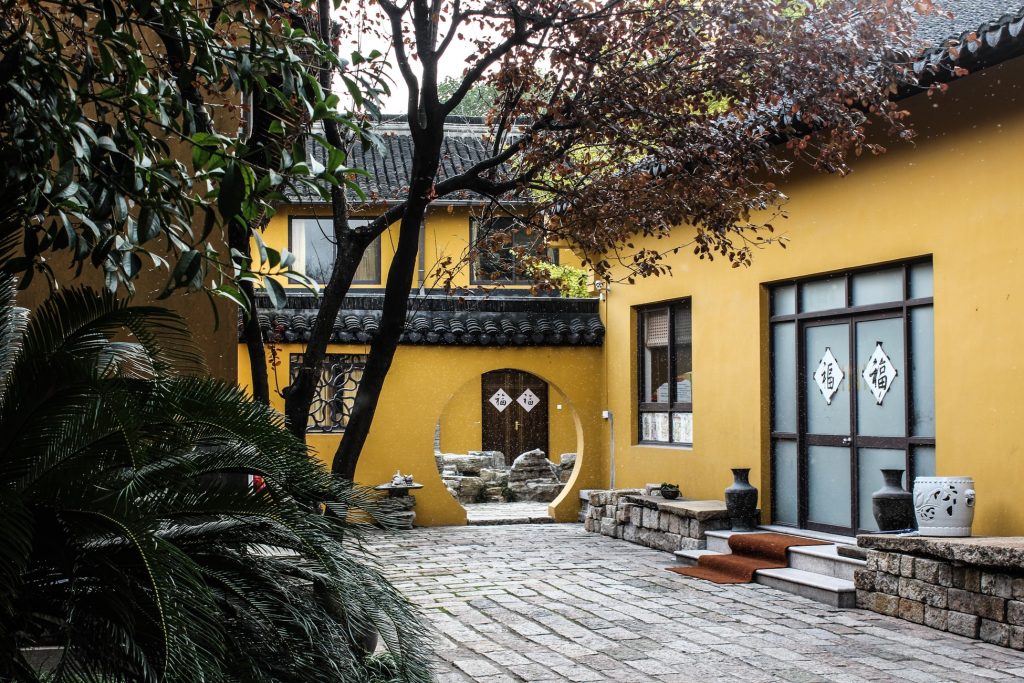

What Is The Purpose Of Feng Shui?
This is to create an absolute balance between you and your environment. Since chi fills everything around us, any shift in the chi of objects around you can influence your activities. So, you need to create harmony in order to avert negative energy flow around you. Positive energy (chi) is thereby required to flow around us to attract luck and progress in our home.
Where Did It Come From?
The origins of this practice are not vastly known. However, evidence shows that the Chinese have been practicing feng shui and arranging their homes with this philosophy for thousands of years. In fact, the earliest known evidence of the Chinese practicing such dates back to the Yangshao and Hongshan cultures. Early records indicate that even graves and tombstones follow feng shui principles as well.
How It Works
Since feng shui operates on the principle of unseen forces driving the world, the idea is for you to make way for those forces by unblocking any space. You can do this easily by understanding the certain symbols, feng shui colors, and feng shui bagua.
Feng Shui Symbols
There are five chi elements that indicate the different stages in the movement of chi from one place to another in a cycle. These stages include Earth, Fire, Metal, Water, and Wood. They run in two opposite cycles, namely the fruitful and destructive.
With that said, there are also different meanings for colors when it comes to the art of feng shui.
- Black: Can refer to your job or occupation. It could be read from mirrors and other reflective surfaces.
- Blue: Interprets thoughts and wisdom. It can be analyzed from computers and other gadgets.
- Green: Involves home and family life. It can be observed from pictures and plants.
- Purple: Refers to wealth. Transport vehicles and trees could be used to read this.
- Red: Translates to reputation and fame. This can be observed from pets and animals.
- Pink: This means love. The color pink could be read from pictures of loved ones and paired items.
- White: Symbolizes ingenuity and children. This is read from art and photos of children.
- Gray: Interprets helpers and travels. This is read from souvenirs and travel items.
- Yellow: This is a symbol of health. You can interpret this through pottery and stone objects.
It’s important to know which colors you like and want to incorporate into your home. That way, you’ll be able to focus on which elements to prioritize when it comes to the colors of items and other objects in your household. It isn’t just about creating aesthetically pleasing color combinations either. By understanding the meanings of these colors, you can achieve color placements that are harmonious – both in visuals and in their respective energies.
Feng Shui Bagua
This is translated as the map of energy flow in any space. Essentially, the bagua is a tool used to analyze the energy of a space, whether it be your home, garden, or office. It’s quite the handy tool to have, as it shows you how energy is distributed around physical objects in your space. Furthermore, the bagua shows you the associations between certain elements and specific aspects of your life.
The bagua is also fairly simple to use. All that is needed is a simple layout of your home. From here, you can place the bagua on the layout and trace your compass reading accordingly.
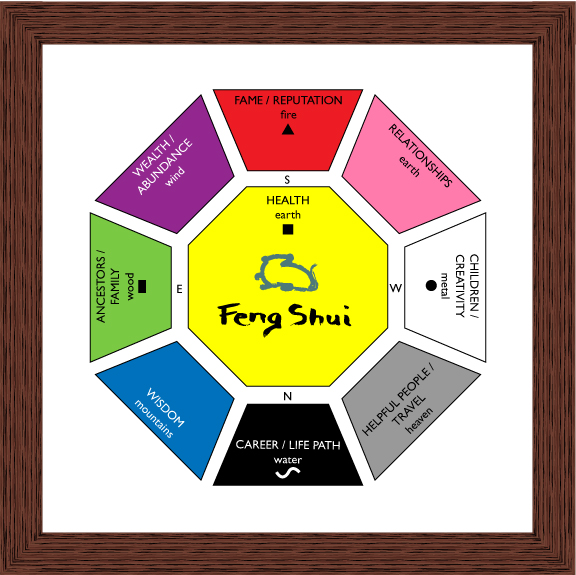

Differences in the Feng Shui Bagua Schools
Compass feng shui school followers propose that all you need to get the chi flowing is to rearrange physical materials and space. Other schools, however, maintain that objects negatively alter chi around an environment. Examples include opposing the placement of some plants in the house for good luck, while other schools embrace it completely.
Followers of the Black Sect Tibetan Tantric (BTBT) school BTB read bagua by superimposing the map over the floor plan of a room or house. On the other hand, other school practitioners believe in other forms of bagua interpretation. In the reading of weak rooms, some proponents advocate that if a house or apartment isn’t rectangular, special chi ornaments should be placed around to boost chi.
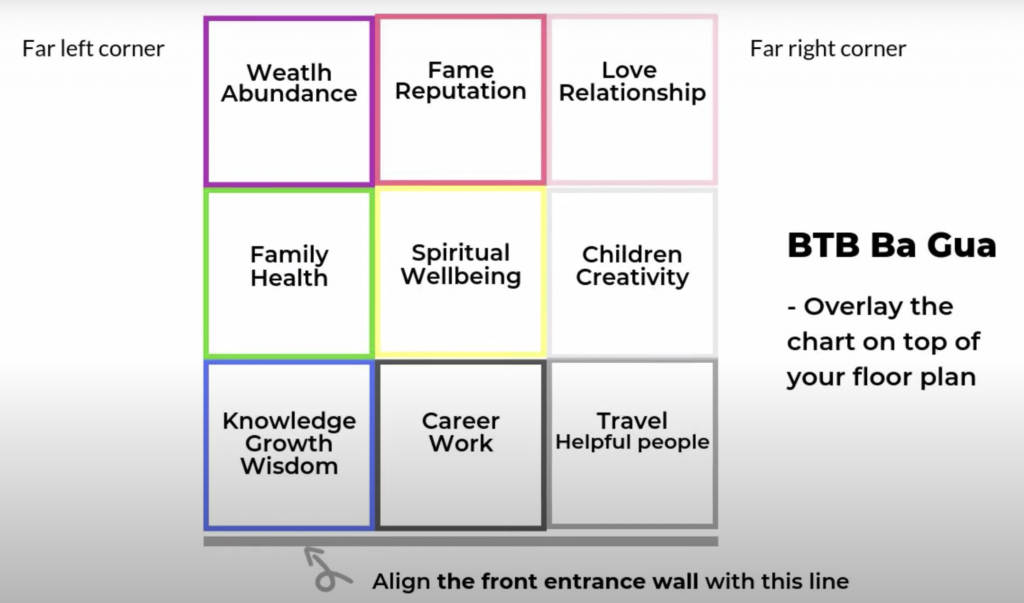

Most schools accept working with nature. Furthermore, natural lightning, rain, and plants are easily approved by some schools.
How to Find Weak Areas in Your Home With Your Bagua
Weak areas in your home are the areas with little chi or energy. These are the parts of your apartment that are hardly noticeable in the reading of your home bagua. They could be chi blockages, making chi not circulate properly in your home.
Another cause of such weak areas could include the modern style of architecture implemented in your house structure. The older bagua map might just miss out on such areas, resulting in bagua extensions. Solutions include drawing in chi to the extensions so as to enable efficient chi distribution.
To find solutions to this problem, you’ll need to have an understanding of the five elements of feng shui. You can identify each element with ideograms represented in the bagua map.
Missing Corners in Bagua
Certain architectural indents in the floor plan of your home can contradict the sections of bagua you need to apply. What happens then when you have missing corners in bagua? Missing corners can be remedied by introducing chi shifting materials, such as feng shui plants or feng shui furniture. Other objects and methods you can use to remedy your missing corners also include:
- Outdoor plants
- A fountain or small pond
- Fence
- Statues
- A wind chime
- Landscaping
- Tiling the area
- A covered patio
- Placing large rocks or boulders
- Outdoor lanterns
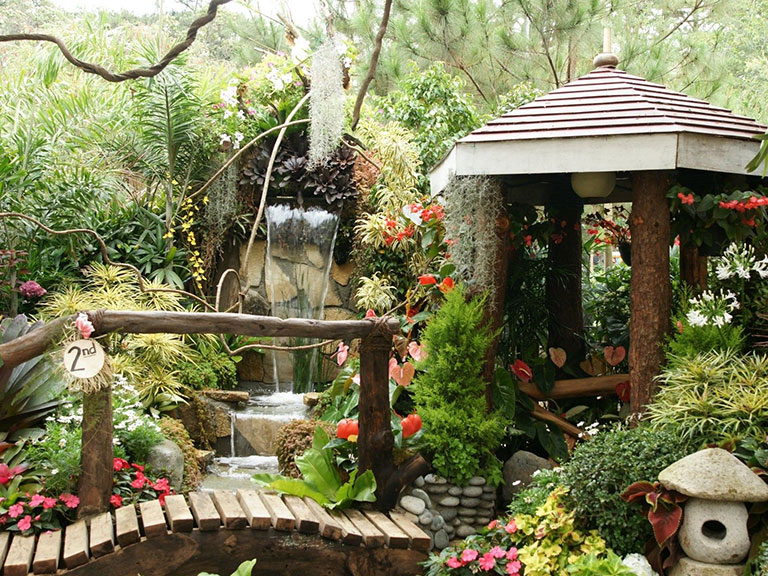

Other Feng Shui Bagua Tips
- Place good luck Chinese coins around places you keep money. This can attract more good luck and attract an increase in your income.
- Cleaning up more can allow the free flow of chi around your home.
- Placing chi ornaments along entrances and exits can further propagate chi around your home. It can also block the rapid escape of chi.
Home Office Feng Shui
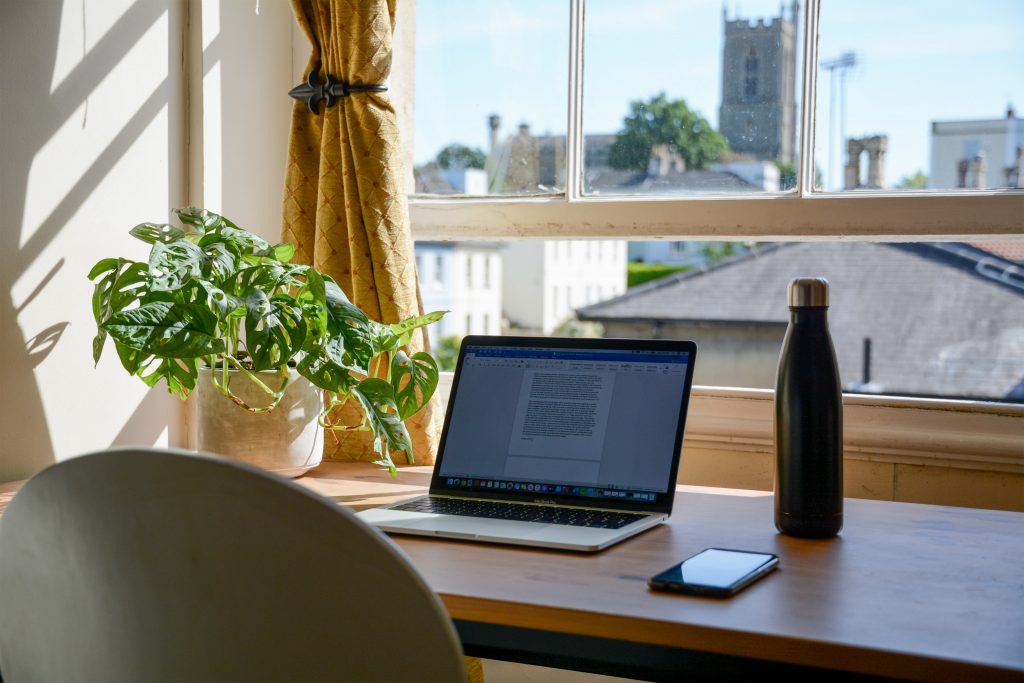

Having a bedroom office or other workspace at home is convenient, especially when you want to learn how to work from home. This is why it’s important to ensure that your home office also follows some feng shui rules. After all, following proper feng shui office harmony can help promote better productivity when working from home.
Know Your Intentions
For starters, you need to determine what your intentions are for your home office. What exactly will it function for? Will your home office be used for writing, accounting, or perhaps the arts? By determining your intentions for your home office, you will be able to establish a solid foundation for your workspace’s energy field.
Keep it Clean
Also be sure to take out any unnecessary clutter in your home office. You don’t want a messy space for an office that is supposed to promote productivity, right? Be mindful with storage and how you put away files and other belongings.
Air and Light Quality
Invite quality air and quality light into your home office. Good air circulation is important, as can help bring more feng shui energy into your space. If your home office is bereft of any windows, then opt for artificial light fixtures and consider getting an air purifier instead.
Add Some Plants
Having some indoor plants can be another great way to lift the energy in your home office. They can naturally clean the air and help reduce stress. Plus, they’re an excellent way of bringing better air into your office, especially if you go for some air-purifying plants.
Be Mindful of Placement
As is the case with many other feng shui elements, the positioning of furniture and other objects in your home office is crucial. In particular, the placement of your desk can be a game changer. According to experts, it’s best to have your desk in a more commanding position. This will help you – both metaphorically and energetically – better see and feel when opportunities are coming your way. Try to have your desk with a solid wall behind you and some plants as support. This kind of placement can help better establish a commanding position in your home office.
Bedroom Feng Shui
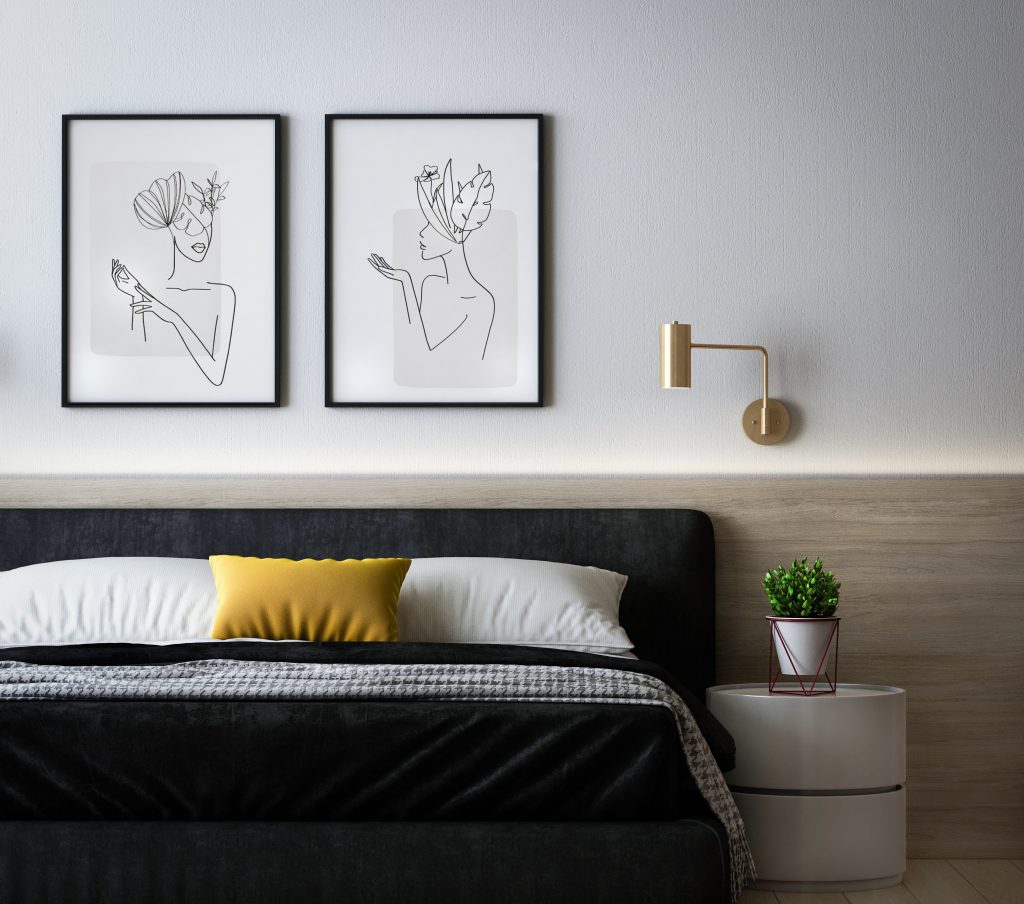

Your bedroom is your sanctuary, so it goes without saying that it’s worth investing in it. According to feng shui philosophy, the bedroom is the most important room in your house. After all, it is the most personal room in your home, on top of being the room you spend the most time in. Ensuring your bedroom follows feng shui principles is important, as your passive state absorbs any energies in your room while you sleep. As such, if any negative or positive energy resides in your bedroom, then it’s easy for you to be affected by them.
Here are some helpful guidelines on building and designing a feng shui bedroom.
Focus on Your Bed
Your bed needs to be in a commanding position. This means aligning your bed where when you lie down, you’re facing the door. However, as per feng shui tips, your bed must not be in direct line with the door.
It’s also best to have a headboard for your bed. But, make sure your headboard is against a solid wall and isn’t opposite another room with a toilet. Moreover, your bed needs to be free from clutter and blockages underneath it. This is because the items under your bed affect your energies when you’re in your passive or “yin” state.
Reduce the Electronics
Don’t cram your bedroom with electronics, as the amount of electromagnetic fields (EMFs) these emit can be detrimental to your well-being. Having too much EMFs in your bedroom can affect the quality of your sleep as well, so try to keep the electronics to a minimum.
Be Selective with Art
Art can ease or stress our lives, depending on how and where it is placed. Concepts that portray crowds or company should be used in place of lonely art, especially if you’re single. With that said, the kind of art you display in your bedroom should evoke a sense of manifestation for your feng shui intentions. A balance should, however, be struck, depending on your taste and style.
Get Rid of Toxins in Your Room
Toxicity in your room can destroy chi, no matter how small it is. The first step is to remove any toxin-producing device or source. You can also try using natural products instead of more artificial and chemical ones. Opt for organic and non-toxic cleaning products, linen, and even sleepwear. That can include your furniture, food, and drink.
Feng Shui: Then and Now
Though the art of using feng shui may be old and antique, it’s still very much present even today! Feng shui ideology isn’t only used in a home but is widely applied in different areas and fields, such as city designs, workspaces, bridge design, and so on. Other places over the world have even implemented feng shui principles in structure design and building. It thus goes without saying that feng shui could be easily all around you – if you know where to look. It may be an ancient practice, but that doesn’t mean it’s totally outdated. It’s still being practiced in many places, after all!

